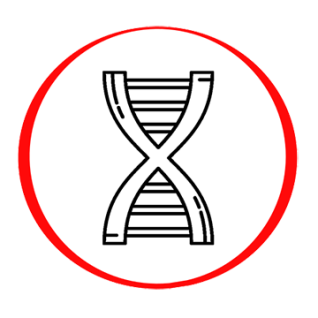Blood take service 5.00€

The validity period of online orders: 3 months from the purchase date.
Telomeres are DNA structures (TTAGGG tandem repeats) located at the ends of chromosomes. They protect these chromosomes from errors that may occur during the cell division cycle and from external and internal damaging effects.
Their task is to ensure that the ends of chromosomes do not wear down or stick together, similar to the plastic tips at the ends of shoelaces. Telomeres also play an important role in ensuring that our DNA is properly replicated during cell division. Due to peculiarities in the DNA replication mechanisms, some DNA blocks at the very end of the chain do not make it into the new DNA copy, leading to the loss of some genetic information. Thus, DNA chains shorten with each cell division. It is believed that this shortening is one of the several factors causing cellular aging. A cell can no longer divide when the telomeres become too short – upon reaching a critical point, the cell becomes inactive (or "senescent") and slowly accumulates damage that it cannot repair, or it dies. Therefore, telomeres shorten with each cell division cycle – and this decrease in length is directly associated with human aging.
Too short telomeres send a signal to the rest of the cell that there is a DNA problem. The problematic DNA needs to be repaired, so it is important that damaged DNA is quickly tagged and processed using the cell repair mechanisms, which can be facilitated by the NAD+ molecule: in the form of infusions or supplements.
How is telomere length measured?
Telomere length is quantitatively determined using the molecular quantitative polymerase chain reaction (qPCR) method, using a sample taken from the inner cheek. This process follows strict quality control protocols and is conducted in a certified laboratory. This method allows doctors to assess the average telomere length of a patient compared to the length of other known genomic regions.
What is NAD concentration?
NAD+ testing is a laboratory test that assesses the level of NAD+ in the body. It is an important test because the NAD+ molecule is essential for cell function, cell renewal, and health maintenance in the body. Assessing NAD+ levels provides important information about the body's ability to function effectively and protect itself from various diseases and the aging process.
What is measured:
- Your biological age;
- Your cell telomere length;
- NAD concentration in the blood.
The study is conducted in collaboration with a geneticist for experimental research purposes.
To register for the study, contact us and we will direct you to a direct contact.






